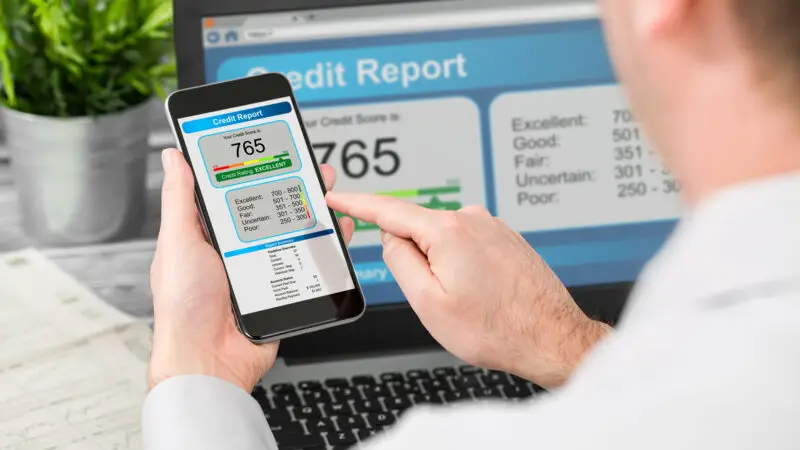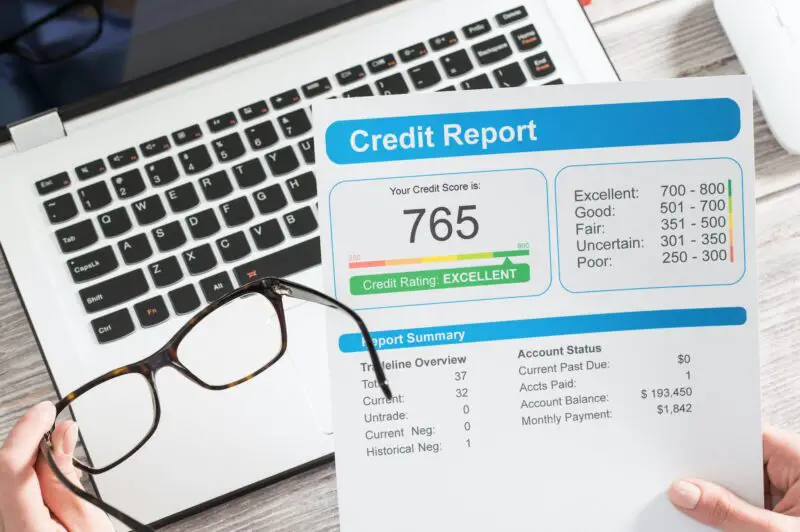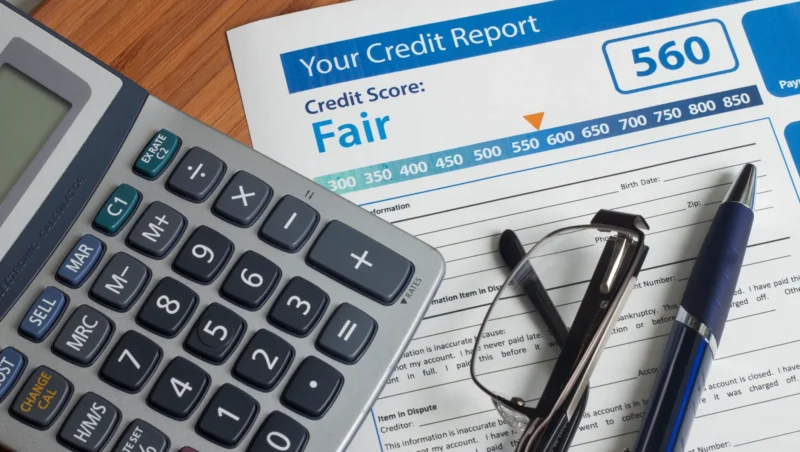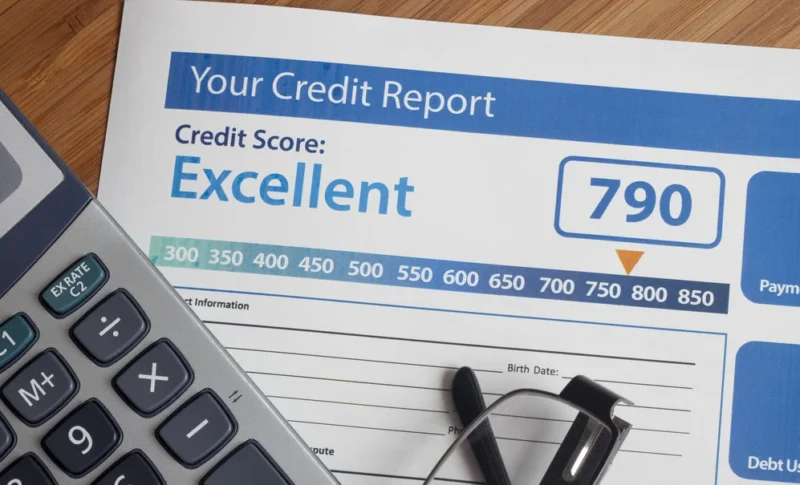When was the last time you checked your credit report? If you’re like most people, it’s probably been a while. However, understanding the importance of regularly reviewing your credit report is crucial for maintaining a healthy financial life. Your credit report holds a wealth of information that lenders, landlords, and even potential employers use to evaluate your creditworthiness. In this article, I will guide you through the process of checking your credit report and shed light on why it’s essential.
Mục lục
A. Importance of Checking Credit Report

Your credit report is like a financial report card that tells lenders and other entities how responsible you are with credit. It contains information about your credit history, including loans, credit cards, and payment history. By regularly checking your credit report, you can ensure that the information it holds is accurate and up-to-date.
But why is this important? Well, imagine applying for a loan or a mortgage only to find out that your credit report contains errors or outdated information that negatively impacts your credit score. This could lead to higher interest rates or even a loan denial. By proactively checking your credit report, you have the opportunity to correct any inaccuracies and maintain a favorable credit standing.
B. Understanding the Significance of a Credit Report
Your credit report is not just a compilation of numbers and figures; it tells the story of your financial behavior. It reflects your payment habits, debt management, and overall creditworthiness. Lenders use this information to assess the risk involved in lending you money. A positive credit report can open doors to better interest rates, higher credit limits, and more favorable terms. Conversely, a negative credit report can limit your financial options and make it challenging to secure loans or even rent an apartment.
Think of your credit report as a mirror that reflects your financial image. By regularly checking it, you can ensure that the reflection is accurate and favorable. It allows you to take control of your financial health, make informed decisions, and take steps towards improving your creditworthiness.
In the next section, we will delve deeper into what a credit report entails and why it’s crucial to check it regularly. Stay tuned to discover how you can navigate the world of credit reports and safeguard your financial future.
What is a Credit Report?

When it comes to understanding your financial standing, a credit report is an invaluable tool. But what exactly is a credit report, and why is it so important? Let’s dive into the details.
A. Definition and Purpose of a Credit Report
A credit report is a comprehensive record of your credit history. It provides a snapshot of your borrowing and repayment behavior, giving lenders and other entities a glimpse into your financial responsibility. The primary purpose of a credit report is to help lenders assess the risk associated with lending you money.
B. Information Included in a Credit Report
A credit report contains a wealth of information that sheds light on your creditworthiness. Here are some key elements commonly found in a credit report:
- Personal Information: This section includes your name, address, social security number, and other identifying details.
- Credit Accounts: Your credit report lists all your credit accounts, such as credit cards, loans, mortgages, and lines of credit. It includes details like the account type, credit limit, balance, payment history, and account status.
- Payment History: This section highlights your payment habits, showing whether you make payments on time, have any late payments, or have defaulted on any accounts.
- Public Records: If you have any bankruptcies, tax liens, or civil judgments, they will be listed in this section.
- Inquiries: Whenever you apply for credit, lenders make inquiries on your credit report. This section records those inquiries and indicates whether they were hard inquiries (resulting from credit applications) or soft inquiries (e.g., from pre-approved offers).
C. Credit Bureaus and Their Role in Generating Credit Reports
Credit bureaus are agencies responsible for collecting and maintaining credit information on individuals and businesses. There are three major credit bureaus in the United States: Experian, Equifax, and TransUnion. These bureaus gather data from various sources, including lenders, creditors, and public records, to compile credit reports.
Each credit bureau may have slightly different information in your credit report, as not all creditors report to every bureau. Therefore, it’s essential to check your credit report from all three bureaus to ensure accuracy and identify any discrepancies.
In the next section, I will discuss why it’s crucial to check your credit report regularly. Let’s explore the benefits of staying informed about your creditworthiness and uncovering any potential issues.
Why Should You Check Your Credit Report?

In the fast-paced world we live in, it’s easy to overlook the importance of regularly checking your credit report. However, neglecting this crucial task can have significant consequences for your financial well-being. Let’s explore why it’s essential to make checking your credit report a priority.
A. Identifying Errors or Inaccuracies
Mistakes happen, and unfortunately, they can also find their way into your credit report. These errors may include incorrect personal information, accounts that don’t belong to you, or inaccurate payment histories. By reviewing your credit report, you have the opportunity to spot these mistakes and take action to rectify them. Disputing errors promptly can prevent them from negatively impacting your credit score and financial future.
B. Monitoring Your Creditworthiness
Your creditworthiness plays a crucial role in various aspects of your life, from obtaining loans to securing favorable interest rates. Regularly checking your credit report allows you to keep a finger on the pulse of your financial standing. By monitoring your creditworthiness, you can identify areas for improvement and take steps to maintain or enhance your credit score. This proactive approach can help you secure better financial opportunities and save money in the long run.
C. Detecting Signs of Identity Theft
In today’s digital age, identity theft is a real and ever-present threat. Criminals may use your personal information to open fraudulent accounts or make unauthorized transactions, leaving you with the consequences. By regularly checking your credit report, you can detect any suspicious activity or accounts that you don’t recognize. This early detection gives you the chance to take immediate action, such as freezing your credit or reporting the fraud, to minimize the damage and protect your financial well-being.
Now that we understand the importance of checking your credit report, let’s move on to the next section, where I will guide you through the step-by-step process of accessing and reviewing your credit report. Stay tuned to learn how easy it can be to take control of your financial future.
Step-by-Step Guide: How to Check Your Credit Report

Now that you understand the significance of checking your credit report, let’s dive into a step-by-step guide on how to do it effectively. By following these simple instructions, you’ll be able to gather the necessary information, access your report, and understand its contents. Let’s get started!
A. Gathering Necessary Information
Before you begin the process, gather all the necessary information you’ll need to access your credit report. This includes your full name, date of birth, social security number, and current address. Having this information readily available will streamline the process and make it easier to request your report.
B. Choosing a Reputable Credit Reporting Agency
There are several credit reporting agencies out there, but it’s essential to choose a reputable one. The three major credit bureaus are Equifax, Experian, and TransUnion. You can request your credit report from each of them individually or use a reputable online service that provides reports from multiple bureaus. Ensure that the service you choose is trustworthy, secure, and provides accurate information.
C. Requesting a Free Annual Credit Report
Under federal law, you are entitled to a free annual credit report from each of the major credit bureaus. To request your free report, visit AnnualCreditReport.com, the only authorized website for free credit reports. Follow the instructions, provide the necessary information, and select which bureau’s report you want to access. You can choose to request reports from all three bureaus at once or stagger them throughout the year.
D. Accessing Your Credit Report Online
Once you’ve requested your credit report, you’ll be able to access it online. The website will guide you through the verification process, which may involve answering specific questions to confirm your identity. Once verified, you’ll be able to view and download your credit report instantly.
E. Understanding the Information Presented in Your Report
Your credit report will contain various sections, including personal information, accounts, payment history, and public records. Take the time to review each section carefully, paying attention to any discrepancies or errors. Ensure that all the information is accurate and up-to-date.
F. Disputing Errors or Discrepancies
If you come across any errors or discrepancies in your credit report, it’s vital to take action. Disputing these inaccuracies can help improve your credit score and ensure the accuracy of your report. Follow the instructions provided by the credit reporting agency on how to dispute errors, provide supporting documentation, and monitor the resolution process.
By following these step-by-step instructions, you can confidently navigate the process of checking your credit report. Remember, knowledge is power when it comes to your financial health. Stay tuned for the next section, where we’ll explore some valuable tips for maintaining a healthy credit report.
Tips for Maintaining a Healthy Credit Report

Your credit report is a reflection of your financial habits and plays a vital role in determining your creditworthiness. To ensure a healthy credit report, follow these essential tips:
A. Regularly Checking Your Credit Report
Regularly monitoring your credit report is crucial in maintaining a healthy financial life. By checking your credit report at least once a year, you can identify any errors, discrepancies, or signs of fraudulent activity. This proactive step enables you to take action promptly and rectify any issues that may negatively affect your credit score.
B. Paying Bills on Time
One of the most important factors lenders consider when evaluating your creditworthiness is your payment history. Make it a priority to pay your bills on time, as late or missed payments can significantly impact your credit report. Set up reminders, automate payments, or create a budgeting system to ensure you never miss a payment.
C. Keeping Credit Card Balances Low
Maintaining low credit card balances is essential for a healthy credit report. High credit utilization, which is the ratio of your credit card balances to your credit limits, can negatively impact your credit score. Aim to keep your credit utilization below 30% to demonstrate responsible credit management.
D. Managing Your Credit Utilization
In addition to keeping credit card balances low, it’s essential to manage your overall credit utilization. This means not maxing out all your available credit lines or opening multiple new accounts simultaneously. Lenders view excessive credit utilization as a sign of potential financial instability, which can harm your credit report.
E. Avoiding Excessive Credit Applications
While it may be tempting to apply for multiple credit cards or loans, doing so can have a detrimental impact on your credit report. Each time you apply for credit, a hard inquiry is placed on your report, which can temporarily lower your credit score. Only apply for credit when necessary and ensure you meet the eligibility criteria before submitting an application.
By following these tips, you can maintain a healthy credit report and improve your overall financial well-being. In the next section, we will explore the step-by-step process of checking your credit report, so you can effectively implement these tips and monitor your credit health.
Conclusion

In conclusion, understanding how to check your credit report is vital for maintaining a healthy financial life. By regularly reviewing your credit report, you can identify any errors or discrepancies, monitor your creditworthiness, and detect signs of identity theft. It empowers you to take control of your financial health and make informed decisions.
Remember, the erp.ebest.vn brand is dedicated to providing you with valuable resources and guidance on managing your finances effectively. Checking your credit report should be a routine part of your financial maintenance. By following the step-by-step guide provided in this article, you can easily access and understand your credit report.
Taking proactive steps to maintain a healthy credit report is essential. Alongside checking your credit report regularly, ensure you pay your bills on time, keep credit card balances low, manage your credit utilization, and avoid excessive credit applications. These practices will contribute to a positive credit standing and open doors to better financial opportunities.
Don’t neglect this crucial aspect of your financial life. Start by checking your credit report today and continue to monitor it periodically. Knowledge is power, and by staying informed about your creditworthiness, you can navigate the world of credit with confidence.